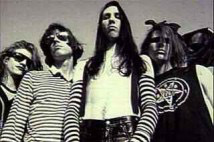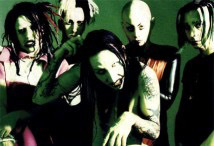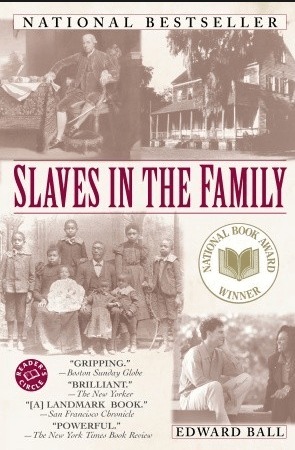Twenty years ago a seed was sown and an artist was born. Changing his name from Brian Warner to Marilyn Manson because he liked the paradigm the name created. The iconic American beauty in Marilyn Monroe and the equally iconic serial killer and cult leader Charles Manson. Manson would create little demo tapes for his friends under the title of Marilyn Manson and The Spooky Kids. They were dark rock songs with a mixture of innocence and sinister intentions. It would draw attention of one Trent Reznor of Nine Inch Nails who would sign the act to his newly created label. Manson went about creating the first record.
He recruited some friends and local musicians to form his band. Which would include for the first time, a real drummer, replacing the drum machine. The studio was booked as well as producer Roli Mossimann who had worked with 80’s hardcore/metal legends Celtic Frost. However, it became clear to Manson, that Roli did not share his same vision.

“When we were finally finished, Roli had done the opposite of what I’d expected. I thought he was going to bring out some sort of darker element. But he was trying to polish all the rough edges and make us more of a rock band, a pop band, which at the time I wasn’t interested in at all. I thought the record we did with him came out bland and lifeless. Trent thought the same thing so he volunteered to help us repair what had been damaged.” – Manson
Roli was fired and Manson asked his new friend and label boss Reznor to work on mixing the album. (a copy of the pre-Reznor mix can be found online after original guitarist Daisy Berkowitz gave it to an interviewer years later as a gift.)
The pair worked on recapturing the spooky and raw element that was a signature of Manson’s sound. To help recapture that vibe, they rented out Sharon Tate’s old house to work on the tapes. Tate, was one of Charles Manson’s victims and the house was reported haunted, as the pair found out.

“One strange thing that happened was we were mixing the song “Wrapped in Plastic”. We were using a computer because we had a lot of samples and sequencing. While we were working on that song the Charles Manson samples from “My Monkey” started appearing in the mix. All of a sudden we’d hear in the song, ‘Why does a child reach up and kill his mom and dad?’ And we couldn’t figure what was going on. The chorus of “Wrapped in Plastic” is, ‘Come into our home/Won’t you stay?’ And we’re in the Sharon Tate house, just me and Sean Beavan [the record’s assistant producer]. We totally got scared and we’re like, ‘We are done for the night.’ We came back the next day and it was fine. The Charles Manson samples weren’t even on the tape anymore. There’s no real logical or technological explanation for why they appeared. It was a truly supernatural moment that freaked me out” – Manson
With the album complete and with the working title “The Manson Family Album”, Manson set upon the artwork. Wanting to further enhance the albums theme of American hypocrisy the twisting of innocent concepts, Manson wanted to use a painting by other famed serial killer John Wayne Gacy. Gacy was a prison artist whose work always depicted clowns. Manson also wanted to use a montage of doctored polaroids of mutilated, naked women and include a home photo of him, naked as a child on the family sofa. However the record label and distribution company thought this could be seen as child pornography. (even though you could not see Manson’s penis.)
“I said, ‘That’s exactly my point. This is a photograph that was taken by my mother, and it’s extremely innocent and very normal. But if you see it as pornography, why am I the guilty person? You’re the person who’s got a hard-on. Why aren’t YOU punished?” – Manson
The end product was a debut album unlike any other record in recent history. The music and lyrical themes had a sinister tone. Part industrial, part metal. Manson used the combination of childhood innocent themes and twisting them into something more evil and wicked.
“Well, the whole point of [Portrait of an American Family] was that I wanted to say a lot of the things I’ve said in interviews […] But I wanted to address the hypocrisy of talk show America, how morals are worn as a badge to make you look good and how it’s so much easier to talk about your beliefs than to live up to them. I was very much wrapped up in the concept that as kids growing up, a lot of the things that we’re presented with have deeper meanings than our parents would like us to see, like Willy Wonka and the Brothers Grimm. So what I was trying to point out was that when our parents hide the truth from us, it’s more damaging than if they were to expose us to things like Marilyn Manson in the first place.” – Manson
The album opens with a recreation of the boat scene from the movie Charlie & The Chocolate Factory. Manson manages to make this evil, creepy and almost terrifying and it builds to a maniacal crescendo. It then kicks off with the track “Cake & Sodomy”, a song Manson found the inspiration for from watching late night American television while staying in New York.
“[you’ve got] Pat Robertson preach about society’s evils and then ask people to call him with their credit card number,” while “on the other channel, a guy was greasing up his cock with Vaseline and asking people to call and give him their credit card number.”
The track “Dope Hat” features a riff that has a similar sound to the theme from Sesame Street. The song itself describes the mental breakdown of a children’s performer who hates his job and uses drugs to numb the pain of his life. “Lunchbox” seems a little autobiographical as Manson talks about a kid being bullied at school and how he dreams of revenge by beating the bully to death with his lunchbox. “Dogma” is a stab at organized religious dogmas with the repeated line ‘You cannot sedate/all the things you hate’.
What makes this album’s themes come together is the use of samples throughout the record. The album features lines from Willy Wonka & The Chocolate Factory, Chitty Chitty Bang Bang, Poltergeist II and Pink Flamingoes. The track “My Monkey” features audio clips from interviews with notorious serial killer Charles Manson from which Marilyn took his surname. However, initial reviews for the record were mixed. Many writing it off as childish, immature and trying to create shock for the sake of shock. A tag that would plague Manson’s career.
The original line up fell apart during and after the recording of the record. Original bassist Gidget Gein was fired due to his constant heroin use. He would later die from an overdose. Drummer Sara Lee Lucas was let go due to his lack of commitment and enthusiasm for the band. The same reason saw the axing of guitarist Daisy Berkowitz. Both members would later sue Manson for royalties. What did remain was the foundation for a legacy for the artist known as Marilyn Manson.
Share this:




